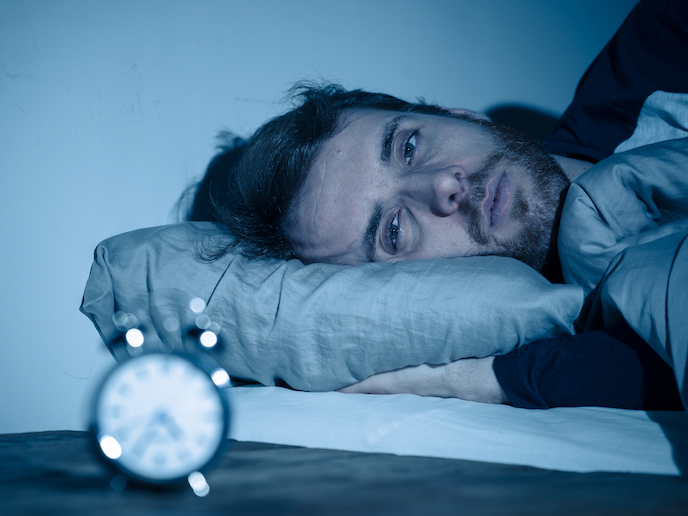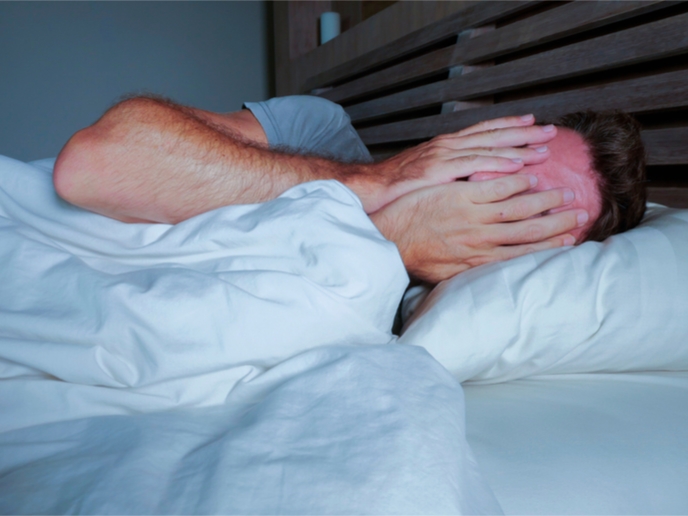A mobile app to treat sleeping disorders
The EU-funded LTS project is helping to roll out digitalised cognitive behavioural therapy to treat insomnia via a mobile phone app. “The target audience are people with medium to severe sleeping problems,” says project coordinator Micael Gustafsson, CEO of Learning To Sleep(opens in new window), the Swedish company that developed the system. “Around half the patients we meet are using sleeping pills.” Sleeplessness is often linked to stress. In countries like the United Kingdom, over 40 % of the working population sleeps less than 6 hours per night, Gustafsson notes. “People have busy lives. They think they do not have time to sleep because they need to take care of the children, their career, or they need to stay alert on social media.” But over a longer period it can affect general health, disrupting the body’s natural ‘sleep clock’. “For a lot of people, the clock resets by itself but in people with sleep problems it does not reset,” Gustafsson explains.
Ensuring compliance
Self-help apps exist. “But only 3-4 % of patients actually follow the programme. There is a huge problem of compliance and adherence,” Gustafsson adds. The LTS app uses an algorithm based on the patient’s sleep data, derived from a questionnaire. It tells the user when to go to bed and get up, recommending individualised exercises that can help, while providing information on sleep. It incorporates a sleep diary to be filled in every day, but crucially also includes remote sessions with a real therapist to keep the user on track. The psychologist holds a weekly session via the app’s audio, video or chat, normally lasting between 10 and 20 minutes. “We’ve seen that for 99 % of patients, one session per week with their therapist is enough,” he says.
Sleep restriction therapy
The LTS app treats insomnia through sleep restriction, an evidence-based method that has been used by doctors for a long time. Here, sleep time is reduced to a minimum – around 4.5 to 5 hours a night and then built up over 5 weeks. “It seems contradictory, but you need to sleep less so the brain really wants to sleep and when the brain does that, it resets,” Gustafsson explains. “We track the patient’s progress during the treatment period of 5 weeks with a psychologist in the background helping the patient to follow the programme – the psychologist is more of a coach than a therapist,” he notes. “You get very tired so you need someone to encourage you to continue because the turning point will come somewhere in week 3 or 4.”
Use in healthcare systems
Early in 2019 the LTS system was approved by the Swedish healthcare system which reimburses the treatment cost. The app reduces up to 16 hours of a psychologist’s working time done in the traditional way to 1 hour and 15 minutes, Gustafsson says. “We do the treatment for one fifth the normal cost which is a big saving for the healthcare system.” EU funding has enabled feasibility studies in France, Germany, Spain and the United Kingdom. “Our pilot in London had the same result as Sweden – 94 % of patients saw an improvement,” Gustafsson adds. “Digital interaction is cost efficient but the human element will remain for patients with severe sleep problems because they need someone to talk to. It will probably take a long time before we can have psychologist robots that can fulfil that task,” he notes.







